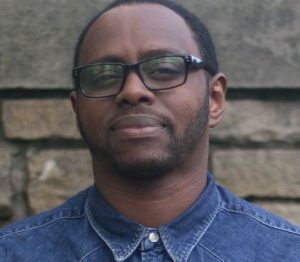 With no family to support them, unaccompanied refugee children are particularly vulnerable and isolated, but Refugee Council’s Youth Development Project (YDP) gives hundreds of kids the chance to be children again. Joe Jakes, project coordinator tells us more:
With no family to support them, unaccompanied refugee children are particularly vulnerable and isolated, but Refugee Council’s Youth Development Project (YDP) gives hundreds of kids the chance to be children again. Joe Jakes, project coordinator tells us more:
Q: How does the Youth Development Project help refugee children without any family?
A: These kids have lost everything they’ve ever known including family members, friends and culture, and on top of that they arrive in a foreign country with limited English or possibly no way of communicating. When they come to the YDP, they are often desperate, hopeless and resigned to the fact that they will never reclaim the simplest joys of life. But through education and psychosocial activities, these children are provided a safe environment which restores hope, playfulness, friendship and security. But we go further and once we’ve built their trust and confidence, we help them to nurture their talents, develop new skills and undertake vocational training that will help them thrive in the community.
Q: What’s been going on in the project recently?
A: We’ve been busy running education and social activities and helping children enrol
in school and college. We’ve also been working with partner organisations to expand the reach of our music and sports activities. We know how lonely and difficult the Christmas period can be for all the children and we held a big Christmas party so that they have some positive memories to share with their classmates when they resume school in January. To you and I, this is just a simple gesture but to them this means a lot; this is the closest they get to having something that resembles the family gatherings and celebrations which they have lost.
Q: What’s something you find inspiring about the kids?
A: To be quite frank, I am humbled and privileged to be in a position of trust where these children feel confident and comfortable to share with me their stories of loss, memories of their childhood and sadness for the people and things they loved and miss so dearly. I am inspired by their resilience and ability to try and move beyond trauma, but don’t get me wrong here—not everyone is able to fully recover from the loss of their parents and family members and some of these children will sadly carry their wounds into adulthood. Nevertheless, their willingness to learn new skills, pursue education and build new lives keeps me motivated every single day.
Q: How did you get into this area of work?
A: My grandparents were killed in late 1950s in Rwanda and then my father became a refugee at a very young age. Growing up, I was exposed to stories of human suffering but also triumph and it’s this experience that allowed me to develop strong passion for social justice and in particular refugee rights. This led me to pursue an academic path in international humanitarian law and diplomacy, which cemented my interests in trying to make the world a better place.
Q: Is there anything you’d like to say to Refugee Council’s supporters?
A: I am so thankful for their continued support. They are making a big difference in the lives of children, most of whom they will never see or know their names. I appreciate that they have chosen to care, when the world’s narrative is so often “let’s care for ourselves before worrying about others”. I believe it is important to care about refugee children as their futures are our futures, and also, however comfortable we feel, you never know when you or your descendants will need to seek refuge.

